Archive for January, 2011
Friday, January 21st, 2011
By Carolyn Yeager
copyright 2011 carolyn yeager
Updated on Jan. 24, 2011
What makes Jews special? Are they like “other people” or are they not? Here is one confusing answer from the world’s most famous holocaust survivor.
As I was compiling the particular sections in All Rivers Run to the Sea that reveal, in one way or another, Elie Wiesel’s sometimes certain, sometimes probable links to the Mossad and it’s precursors, I came across this interesting passage that shows something a little different—but equally important to the understanding of Wiesel’s views on crime.
Thus, I’m taking a short detour on the way to the promised “Elie Wiesel and the Mossad,” part two, but I will get there eventually.
On page 288 and 289 of Wiesel’s first memoir dealing with his life up to 1968 or thereabouts,1 he writes that, after his arrival in New York in 1956, his editor in Israel, Dov, suggested a report on organized crime in America. Wiesel tells us that when doing the research he discovered some Jewish names among the underground crime figures, even some working for the Irgun.
I’m sure that doesn’t surprise most of you reading this, and certainly not me, but Wiesel claims a different response:
These revelations came as a shock to me. I simply could not imagine a Jew becoming a hired killer. Yes, I had too idealistic a view of Jews, but the fact is that in Eastern Europe my people might have been criticized for just about anything, but not involvement in murders. Jews may have been guilty of lying or cheating, fraud or smuggling, theft or perjury, but murder was unimaginable.
Elie—who had worked for the Irgun for years in Paris; followed every fragment of news about the events in Palestine from at least 1946 on; was in communication with many of the behind-the-scenes characters responsible for the successful ascendance of the state of Israel—this man was shocked to learn that Jews were among the world’s killers, hired or not?
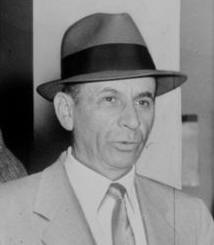
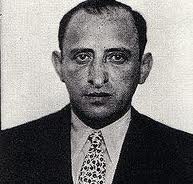
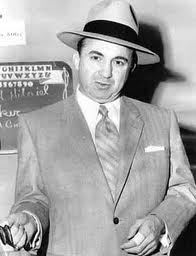
Left: Meyer Lansky, boss of the Jewish crime syndicate, was a Polish Jew born in Russia who emigrated to the U.S. in 1911; Center: Meyer “Mickey” Cohen, born in Brooklyn to Ukrainian Jewish parents, was a notorious mobster; Right: Moe Sedway, Lansky’s faithful lieutenant.
Wiesel is pretending to an idealism he had to have lost long ago, if he ever had it. When he says “I could not imagine a Jew becoming a hired killer,” the first thing that pops into my mind is Condoleezza Rice saying “We could not imagine an airplane being used as a weapon by smashing it into a skyscraper.”
Yet, he readily admits that Jews lie, cheat, commit fraud and acts of smuggling, theft and perjury (see Is Elie Wiesel a Perjurer?). I guess, in Wiesel’s mind, these crimes are not as bad as murder. But any one of them can result in death to the parties victimized by such crimes, and anyone committing them has to know the harm they are doing to these others. We also know that lying and cheating are commonly done by Jews against non-Jews, and that the Talmud and the Torah not only excuse these crimes but in some cases recommend them! Fraud, smuggling and perjury necessarily combine both lying and cheating.
In a way, Wiesel, as a religious Jew well-versed in the scriptures, seems to be excusing these practices because they are less than murder, the one crime Jews should never do. But yet killing for the attainment of Eretz Yisrael, as did all the “resistance fighters” he so admired, must be acceptable to his Zionist eyes.
Let’s see if there’s an answer in his following paragraph:
I like to think that what accounts for this virtual absence of blood crimes in our communities was perhaps related to the commandment revealed at Sinai: Thou shalt not kill. The voice of God sounds and resounds in our collective memory. But then what accounts for the present reality? The fact is that in modern Israel acts of murder do occur. True, there are few such cases, but even one is too many. It seems we are finally becoming a people like any other, neither better nor worse. Does this mean we are not “the chosen people?” No, we are, but only in the sense that Anglo-Jewish writer Israel Zangwill attributes to the term: “the people that chooses itself, its destiny and mission.” And as important, in the sense of teaching all peoples that they, too, must aspire to reach beyond themselves, to lift themselves ever higher, and to see themselves as unique.
Wiesel tells us that Jews became murderers when they became more like the rest of us. Does history bear that out? Can it not be demonstrated that what accounts for the absence of blood crimes within Jewish communities is related to the commandment not to do harm to your fellow Jews—but the same does not apply to non-Jews. The Ten Commandments were applied to fellow Hebrews, not to outsiders. This is more likely what accounts for the present reality. Jews in the Diaspora have plenty of targets which are not forbidden to them to harm.
But Wiesel is complaining that murders now occur among Jews in modern Israel. [And we are again served up that obligatory cliché: “Even one is too many.”] He explains this downward drift by saying “we are finally becoming more like other people.” But to assure they remain “the chosen,” he is willing to make quite a concession—that it is not God who chose that Abramic tribe centuries ago, but they have chosen themselves.
Goyim have been saying that for a long time, but little did we know that Elie Wiesel would one day agree! But does he really, or did he talk himself into a corner, then try to talk himself out of it? He concludes that the Jewish mission is to “teach all peoples that they, too, must aspire beyond themselves; they, too, should lift themselves higher; they, too, should see themselves as unique. I had not thought we were trailing so far behind those darn Jews. Is it because Jews do not murder their own for hire? That may be true. But I will venture to say that Jews are routinely implicated in causing non-Jews to attack and murder each other. That cannot be OK. And there is the ironic “fact,” as Wiesel says elsewhere in his memoir, that it was Cain who slew his brother Abel at the beginning of the Jewish story.
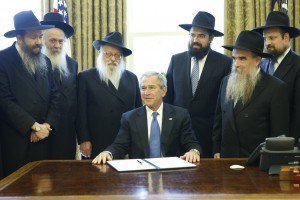
Chabad-Lubavitch members visit the White House regularly bearing sentimental mementos, such as menorahs, to make sure their interests are not forgotten. The Chabad originated in Russia and are of the same Hasidic sect as Elie Wiesel. Is it their uniqueness that Wiesel thinks the Goyim should aspire to?
Elie Wiesel goes to Las Vegas in 1957
On pages 301-2, I found another interesting passage that adds to the above. After his first year in New York, Wiesel’s editor Dov, with his wife Leah, came from Israel for a long visit. Dov was fascinated with all things American. Wiesel took them to concerts and restaurants in New York; then Dov rented a car for a six-week cross country trip for the three of them. One place they stopped was Las Vegas, which, after the war, was built up mainly by Jewish crime figures.
In 1946, Jewish gangster “Bugsy” Siegel, with help from friend and fellow mob boss Meyer Lansky, used dirty money laundered through Mormon-owned banks to build The Flamingo gambling casino. Siegel experienced financial difficulties and died in a hail of gunfire in Los Angeles, CA. Other mobsters saw the potential that gambling offered in Las Vegas. From 1952 to 1957, still using some Mormon bankers and adding Teamsters Union funds, they built the Sahara, the Sands, the New Frontier, the Royal Nevada, the Showboat, The Riviera, The Fremont, Binion’s Horseshoe, and finally The Tropicana. Already in 1954 over 8 million people were visiting Las Vegas yearly, pumping 200 million dollars into casinos. By 1957, when Wiesel arrived, it was the heyday of the flashy, openly-mobster-run Vegas. 2
Wiesel found comrades with strong Israeli ties there, as he does everywhere. He writes sparingly about it:
There was Las Vegas and its slot machines, available even in the rest rooms. Men and women were standing in dazzlingly bright casinos, betting a year’s salary or more on a little ball that leaps and dances about indifferently, stupidly, before coming to rest on a number , any number. Wherever you turn, you see frozen faces and trembling hands. The casino in Monte Carlo 3 is the playground of the rich, who seem burdened by their wealth. In Las Vegas one sees ordinary people fed up with not being rich.
At the Sands Hotel we dined with Hank Greenspun, a powerful man in the city who was the owner of the daily Las Vegas Sun, who told us of his clandestine activities in support of Israel. In 1948 he was involved in an illegal arms shipment, for which he was indicted and sentenced to several year in prison. Of this he was very proud.
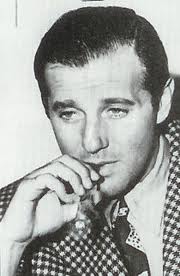
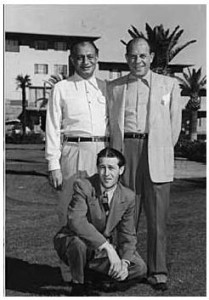
Well known Las Vegas Jewish crime figures. Left: Benjamin “Bugsy” Siegel; Right: Israel “Icepick Willie” Alderman, Joe Rosenberg, Gus Greenbaum
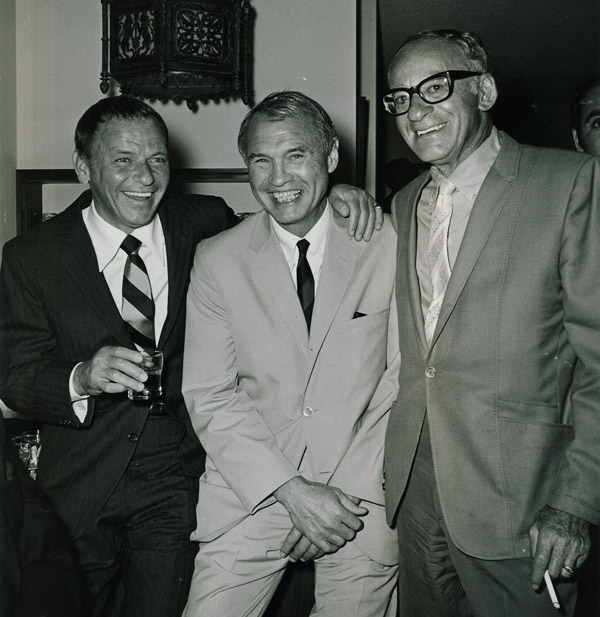
Below: Frank Sinatra, Hank Greenspun and Eddie Moss, bookie and casino manager of the Sahara Hotel.
Greenspun may have been sentenced to prison, as Wiesel says, but he didn’t serve any time. According to Wikipedia, in 1947 he was shipping guns and airplane parts to the Haganah fighters in Israel. He was arrested and convicted of violating the Neutrality Acts. Fined a relatively small sum of $10,000, he received no prison time. In 1961, President John F. Kennedy pardoned Greenspun, and when he died in 1989, former Israeli PM Shimon Peres called him “a hero of our country and a fighter for freedom.” Greenspun purchased the Las Vegas Sun newspaper in 1949, which he ran until his death. 4
Wiesel doesn’t tell us how he and his editor managed to link up with Hank Greenspun, but then it goes without saying. By 1957, Greenspun was able to entertain and regale visiting Jews and Israelis of note with his illegal exploits for terrorists operating in Palestine. A few years later, his crime was washed away by a U.S. president.
Endnotes:
1. Elie Wiesel, Memoirs: All Rivers Run to the Sea, Alfred A. Knopf, 1995. 418 pp.
2. http://en.wikipedia.org/wiki/History_of_Las_Vegas
3. He means the one in Monaco, on the French coast.
4. http://en.wikipedia.org/wiki/Hank_Greenspun
7 Comments
Category Featured | Tags: Tags: All Rivers Run to the Sea, Hank Greenspun, Irgun, Jewish crime, Las Vegas, Meyer Lansky,
Social Networks: Facebook, Twitter, Google Bookmarks, del.icio.us, StumbleUpon, Digg, Reddit, Posterous.
Friday, January 14th, 2011
Hailey S. from haileylovespink@… has written to us and we think it’s such a great letter that we’ve inaugurated a “Letter of the Week” blog just for it. We might not get a good letter like this every week, or even every month … but when we do, we’ll share it with you. And we assure you, we haven’t changed a word or a letter, or corrected any spelling. This is exactly as we received it.

Hailey writes:
I think you have some serious issues, if this is what you are dedicating your life too. This man has a message, and has been changing lies. You can’t argue with the evidence. Just because you have some stupid false testimonies doesn’t mean they’re true. This is the biggest waste of time I have ever seen, life goes on. & the past stays the same. You can’t change it. So why don’t you dedicate your life to something more important, like getting off of your computer. K, BYE.
Well Hailey, I’m not dedicating my life only to this, but right now it’s pretty important to me, I admit. You got me there.
I am glad you recognize that “this man” has been changing lies. You are way ahead of most in that recognition. Even though changing lies is one of the really strong habits of this man, most people refuse to notice it. You’re right, too, that no one can argue with the evidence for that—there’s just too much of it. And who can argue against your comment that stupid false testimonies are not necessarily true—especially if they’re false! Wow, you’ve nailed it.
If this is true, you shouldn’t think what I’m doing here is a waste of time. You are right, though, that life goes on. It does. Yet you say the past doesn’t go on, it stays behind and doesn’t change. Hmmm. That seems to mean that changing lies doesn’t work because you can’t change the past no matter how many lies you change. Now, that seems to me to be a reason to keep dedicating my life to this, and to stay on my computer. Can you see the logic? I hope so.
Hailey, I loved your letter and really hope you will write again. Even though you don’t like stupid false testimonies, keep reading this website (which unfortunately is full of stupid false testimonies) and let us know what you think. Bye now …Carolyn
Monday, January 10th, 2011
Has conformism completely overtaken free, questioning, adversarial minds on today’s university campuses?
February 1st is the deadline for us to receive essays in our “A Question of Ethics” Essay Contest, for which we have $1000.00 set aside for prizes. That is just 21 days from the date of this posting, yet we have not, as of this date, received even one.
Can it be that $500.00, $250.00 and $125.00 doesn’t tempt even a few students out of the thousands at Boston and Chapman Universities, where we have advertised our contest? According to the odds, we could expect at least a handful who would be independent enough, and smart enough to figure out that the fewer the entries, the greater the chance of winning. After all, the prize essays would not necessarily have to be of doctoral dissertation quality! They would only have to follow the evidence presented on this website, use proper grammar and punctuation, and be posted here with the winner’s name. Ay, there’s the rub.
Your name and your essay will be posted on this site. What sort of retaliation by teachers, administrators, and your fellow students would you have to endure? And would the stigma follow you for the rest of your life? Might you possibly have difficulty, as someone identified as flirting with “holocaust denial”, with that post-graduation trip to Europe that you’re hoping to make? The idea of such repercussions makes even the $500 of little value, and the intellectual challenge that may have lit a small fire in your mind is easily damped down and put out. Why chance it? The drawbacks outweigh the benefits.
Yes, we understand. We offered this essay contest for straightforward reasons, but we also knew it would be a good lesson in how the weight of political correctness on our college campuses, particularly around this issue and even more particularly around the person of Elie Wiesel, is strangling freedom of thought, freedom of intellectual pursuit in areas of politically-enforced belief structures, and freedom to express your “different” views openly.
Our contest will either bear fruit in the form of essays to read, judge and discuss, or it will bear fruit as an example of the suffocating, silencing effect of the politically-enforced “new religion” of our time—the sacred, unquestioned memory of “holocaust survivors.” But bear fruit it surely will. It is up to you, students of Boston University and Chapman University in Orange CA, which it will be.
Herewith, for the last time, is our original announcement:
“A Question of Ethics” Essay Contest announced for Boston and Chapman University students; $1000 in prizes
We are pleased to announce the first East Coast—West Coast “A Question of Ethics” Essay Contest for students enrolled at Boston University in Massachusetts and Chapman University in Orange, California.
The winning essay will be awarded $500; second prize will receive $250; two honorable mentions $125 each. The winning essays will be published on the web site Elie Wiesel Cons The World.
The essays must analyze one or more ethical issues surrounding Elie Wiesel as they are presented on the pages of the website Elie Wiesel Cons The World. These issues may include [not in order of importance]
- Prof. Wiesel’s refusal to show his claimed tattoo.
- The documents from Buchenwald that do not support Wiesel’s presence there.
- His claim to be in the famous Buchenwald Liberation Photo when, according to his book, he was deathly ill in the hospital at the time.
- His close association with the Irgun terrorist gang in the late 1940’s.
- The questions surrounding the authorship of his first book, Un di Velt Hot Gesvign, allegedly 866 pages written in less than two weeks while on a ship crossing the Atlantic.
- The insistence that his book Night, read by school children all over the world, is a factual account of his experience at Auschwitz and Buchenwald.
Though the essays must utilize the information made available on Elie Wiesel Cons The World, information from other sources is acceptable as additional material. Our objective is for the essayists to examine the ethics challenges facing Prof. Wiesel in light of the information we have provided at our website.
Deadline for essays to be received is Feb. 1st, 2011. To be considered for a prize, essays must be a minimum of 500 words. Proof of registration as a student at Boston or Chapman University must accompany the essay. This can be a copy of one’s current semester course registration along with a University ID card. Manuscripts should be emailed to [email protected] with the subject line: Ethics Essay Contest.
Contact:
Carolyn Yeager
c/oCODOH, PO Box 439016
San Ysidro, CA 92143
Email: [email protected]
Web: www.eliewieseltattoo.com
No Comments
Category Featured | Tags: Tags: Boston University, Chapman University, essay contest,
Social Networks: Facebook, Twitter, Google Bookmarks, del.icio.us, StumbleUpon, Digg, Reddit, Posterous.
Sunday, January 2nd, 2011
By Carolyn Yeager
copyright 2011 carolyn yeager
Is Elie Wiesel just another Mossad asset? The question is not as surprising as it may sound.
The question of how involved Elie Wiesel was with the early terrorist groups that eventually became The Mossad, Israel’s feared intelligence arm, is one that must finally be asked and answered in a straightforward manner. Certainly, Wiesel is no stranger to politics from his young years. Zionism, along with Marxism and Communism, had strong currency among Eastern European Jews during the 20’s and 30’s; it grew only stronger in the atmosphere of the concentration camps and ghettos created by the Hitler regime and its allies during WWII.
By the time the camps were “liberated” and their inmates, along with others who desired to move about and get a new lease on life, streamed into the Allied Displaced Persons [DP] camps in Germany in 1945, the Zionist cause had reached fever-pitch. These camps, in which all Jewish people were treated with most-deserving status—no matter how they behaved or what their actual past had been—were hotbeds of recruitment for Jewish “resistance” groups such as Haganah, Irgun and Lehi, as well as for illegal transportation and entry into Palestine.
Background of Jewish Terrorist Organizations
The first Jewish paramilitary organization, Haganah [“The Defense”], was formed in 1920. It guarded the Jewish settlements that were forming in Palestine from the Arabs, who were beginning to resent the intruders. In 1931, the more militant elements of the Haganah splintered off and formed the Irgun [also called Etzel and “Defense B”], led from 1943-48 by Menachem Begin.
After 1945, the Haganah was a full-fledged terrorist organization, carrying out bombings, sabotage and illegal immigration of Jews into Palestine. Famous members included Rabin, Sharon, Dayan, Zeevi and Dr. Ruth Westheimer. After Israel became a state in 1948, the Haganah became the Israeli Defense Force.
The Irgun policy was based on ultra-radical Ze’ev Jabotinsky’s “Revisionist Zionism,” which declared that every Jew had the right to enter Palestine, and that active retaliation and Jewish armed force were necessary methods to ensure the Jewish state. It was the Irgun that bombed the King David Hotel—killing 91 people and injuring 46—and carried out the infamous Deir Yassin massacre, along with the Lehi [the Stern Gang]. The Irgun is the predecessor to today’s Likud Party.
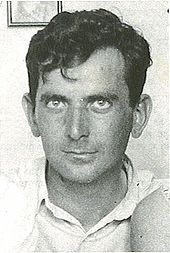
![EW_Stern [gang]](https://www.eliewieseltattoo.com/wp-content/uploads/2011/01/EW_Stern-gang1.jpg)
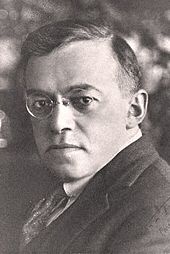
(L)Avraham Tehomi, the first Commander of the Irgun; (C) Ze’ev Jabotinsky, Irgun ideologist; (R) Avraham (Yair) Stern, founder of The Stern Gang
A commander in the Irgun, Avraham Stern, defected from the Irgun and founded the Lehi group, also known as the Stern Gang, They were even more fanatical than Irgun, and declared total war against imperialism and the British Empire, even while the British were at war with the Germans.
After May 14, 1948 [Israel’s independence], Irgun representatives in France purchased a ship and weapons, and brought it to the Israeli coast in violation of a ceasefire agreement with the neighboring Arab states and the United Nations. It was with the Irgun in Paris, France that Elie Wiesel found his first job.
Wiesel in France
Wiesel writes in All Rivers Run to the Sea 1, his memoir, that he and his young fellow “survivors” wanted to go to Palestine right from Buchenwald, but their American liberators couldn’t allow them to do that. They settled for free transportation and lodgings in France, sponsored by a Jewish welfare agency, the OSE, and the government of Charles De Gaulle.
Now, if it turns out to be true that Wiesel was not at Buchenwald, as I believe, then he was not on that particular passenger train trip to France that he describes on page 109 of his memoir All Rivers. There, he gives a strange explanation for why he never received French nationality:
The train stopped at the border, and they had us get off. A police official made a speech, of which I understood not a word. When I saw people raising their hands, I assumed they were volunteering for some task. […] I later found out that the policeman had asked for a show of hands of all those who wished to become French citizens. Since I did not respond, they probably wrote in my file: “Refused French nationality.” The consequence of my blunder was endless harassment and administrative hassles …
This is questionable for several reasons. First, he says prior to the above paragraph that he shared a train compartment with a boy from Sighet who knew a few words in French. But why would any of the boys be expected to know French? They wouldn’t. Second, there were two Jewish American Army Chaplains accompanying them who were supposedly looking out for their welfare. Third, Wiesel says, “They probably wrote in my file.” Didn’t he ask about it? Certainly he would have gotten another chance once he explained his mistake to the welfare authorities, since the point of the whole operation is that the boys from Buchenwald, if they were orphans, were offered to become French Nationals.
This simplistic and nonsensical explanation for why he spent years as a “stateless person” is just not convincing. It does not fit the world as we know it. This will be repeated in following explanations he gives for his experiences.
Wiesel writes that they were greeted by the OSE, the children’s rescue society, with all good things: a splendid chateau, lavish meals, smiles and promises. His smaller “group of young believers” requested kosher food and received it. They were also provided with their requested bibles, prayer books and Talmudic tractates, and a study/prayer room.2 Wiesel appears not to be interested in assimilating as a Frenchman, even though he finds his eldest sister to be living nearby. Among this group of youths were Zionists and Bundists. Elie was the former, while the Bundists preferred to “rebuild a Jewish cultural life in the Diaspora.”
Wiesel says he “rededicated” himself to his sacred studies, and in between played chess. One day:
…a couple of strangers wanted to take pictures as we played. One of them asked some questions in bad German; I answered in good Yiddish. Someone said they were journalists, but I had never met a journalist before; they were of no interest to me, and I didn’t see why I should interest them.3
This became the published photograph that is said to have alerted his sister Hilda, who had married an Algerian Jew and was living in Paris, to his whereabouts. In a few days, she had contacted the OSE and the brother-sister reuniting was arranged. But why have we never seen this picture? Why has it disappeared and why does no one of the holocaust historians or Wiesel biographers care enough to search for it? We can reasonably expect that sister Hilda would have kept that magazine picture as a treasured memento, but once again we are confronted with the unexplainable. 4
It was many months later that he reunited with his second sister, Bea, who was in a DP camp in Germany, waiting on a visa to the U.S. or Canada. According to All Rivers, Bea had traveled to Sighet, where Elie had refused to return. There, someone she met told her that her brother was alive. No further details on this—how and why she went to Sighet, and why the folks there would know. At this point in the memoir, Wiesel writes some very sentimental passages that take our attention away from his sisters’ discovery of his whereabouts, and never gets back to it.5
Early connections with Jewish Resistance
The next item of interest to our topic comes on page 120 of All Rivers. In 1947 the OSE arranges for a young Jewish teacher, François Wahl 6, to give Wiesel private French lessons, since he has decided to remain in France for the time being, rather than to emigrate to Palestine [illegally] or to the Americas or Australia. Wiesel writes that, while only two years his senior, Wahl seemed much older, and that “the bond between them was deep and true.” He then informs us that “in 1947, as the underground war raged in Palestine, François performed important secret tasks for a Jewish resistance group.”
During this time, Wiesel’s stated pursuits had solely to do with Jewish religion and politics. Actually, that has never changed, in spite of the effort to make it appear that he was, for a time, a real student at the Sorbonne [see here]. He associated only with other Jews, all of whom were naturally interested in the events in Palestine, by staying within the Jewish welfare system even though he was transferred twice—first to Taverny, then to Versailles. At the latter, he was not only with his Buchenwald group but with other Jewish orphans who had given themselves false identities and/or had lived with Christian families during the war.7
When Wiesel’s best friend Kalman left for Palestine [illegally], Wiesel stayed behind and kept up his love affair with Jerusalem from afar. There can be no doubt that he was familiar and highly sympathetic with the Zionist ideas of forcing their way into Palestine, and had no qualms about their methods.
On page 150 he confides: “I had wanted to write ever since childhood. In Sighet I often went to the offices of the Jewish community to write a page of Bible commentary on the only available Hebrew typewriter.” [See my questions about Wiesel’s typing ability here.] On the same page, Wiesel questions the value of writing, and more particularly, of words themselves.
… I told myself I should write. But I had to be patient. Someday, in years to come, I would celebrate memory, but not yet. Even then I was aware of the deficiencies and inadequacies of language. Words frightened me. What exactly did it mean to speak? Was it a divine or diabolical act? The spoken word and the written word do not reflect the same experience. The mysticism with which my adolescence was imbued made me suspicious of writing.
And on and on. This is a person caught in such a narrow perspective of life based on readings of Judaic mysticism that he has difficulty seeing anything just for what it is. Also, someone who forever contradicts himself. He wants to write but is frightened of words; he loves and hates at the same time.
At the “end of summer” the counselor finally persuades Elie to leave the comfort of Versailles and take a room of his own near the counselor’s home—he was nineteen and one of the last of his group to leave. From here, he continued seeing his mentor Shushani, his French teacher François, and followed Jewish current events closely. He says he bought the newspapers regardless of the expense.
Finally, the momentous event of the U.N. resolution of Nov. 29, 1947, partitioning Palestine to create a homeland for the Jews, excited Wiesel into action. He found the Paris office of the Irgun newspaper, Zion in Kamf, and offered his services. He was accepted. This is what he writes.8 Whether this is the way it really happened we can’t be sure, knowing as we do how Elie Wiesel throughout his life has played fast and loose with the facts.
Next: Part Two – The activities of the Irgun dominate Wiesel’s life in 1948
Endnotes:
- Elie Wiesel, All Rivers Run to the Sea, Alfred A. Knopf, 1995, 432 pgs.
- Ibid, p 110
- Ibid, p 113
- Hilda DID keep it and showed it at the end of her Shoah Foundation “visual history” interview. I wrote about it and posted the picture here.
- Ibid, p 115
- Warren Routledge writes that Wiesel’s biographer Jack Kolbert changed Francois Wahl’s first name to Gustave, probably because Francois Wahl became well known as a homosexual “since he was 15 years old.”
- Ibid, p 130
- Ibid, p.157
5 Comments
Category Featured | Tags: Tags: All Rivers Run to the Sea, Francois Wahl, Haganah, Irgun, Jewish orphans, Mossad, Oeuvre de Secours, Shushani/Chouchani, sister Bea, sister Hilda, Stern gang, Yiddish typewriter, Ze’ev Jabotinsky, Zion in Kamf,
Social Networks: Facebook, Twitter, Google Bookmarks, del.icio.us, StumbleUpon, Digg, Reddit, Posterous.










![EW_Stern [gang]](https://www.eliewieseltattoo.com/wp-content/uploads/2011/01/EW_Stern-gang1.jpg)

